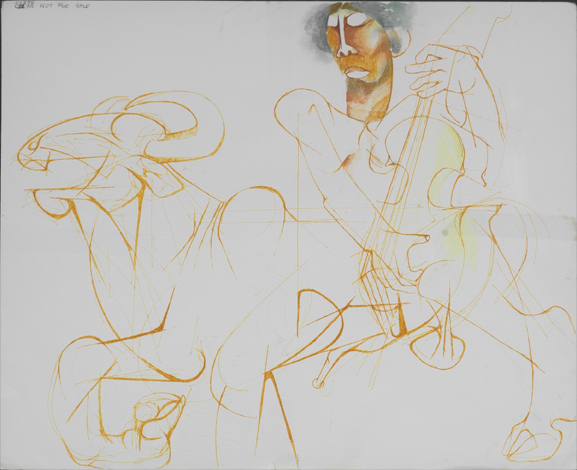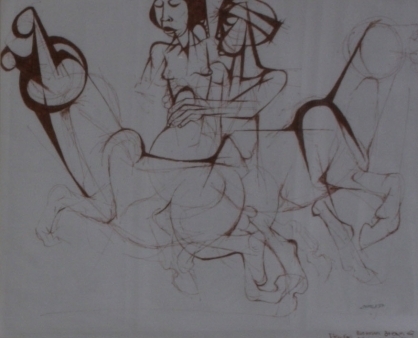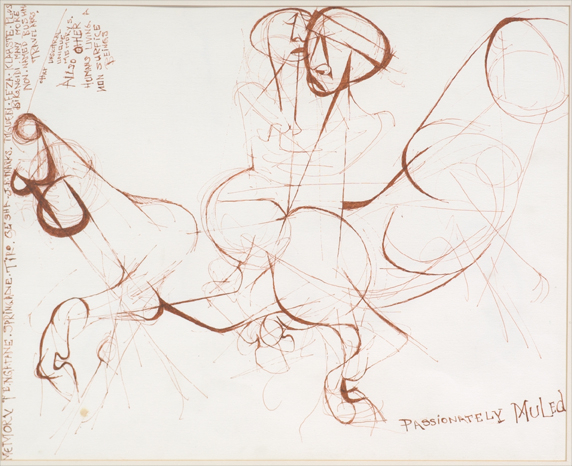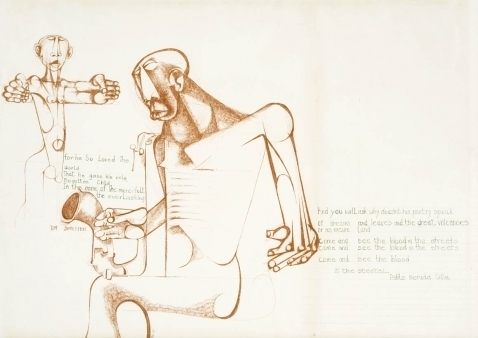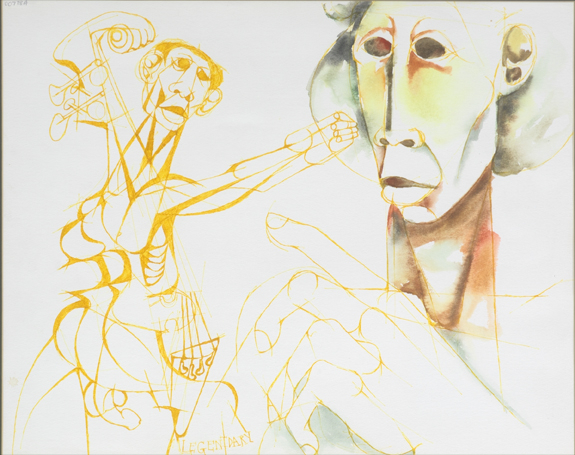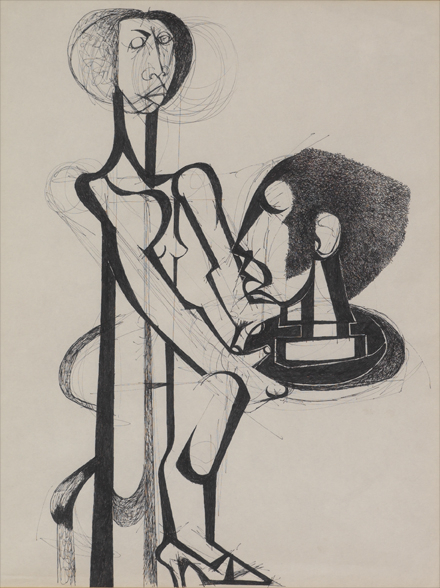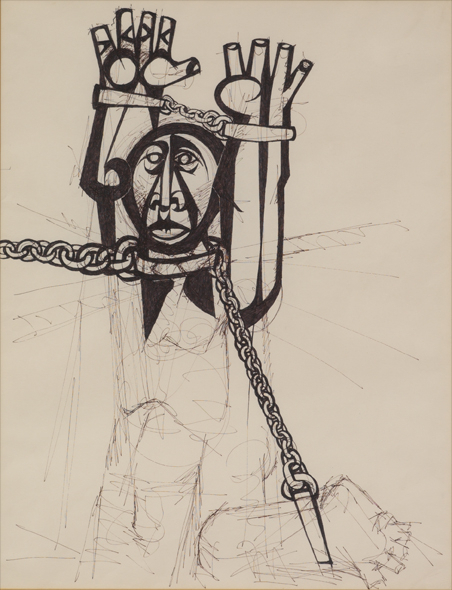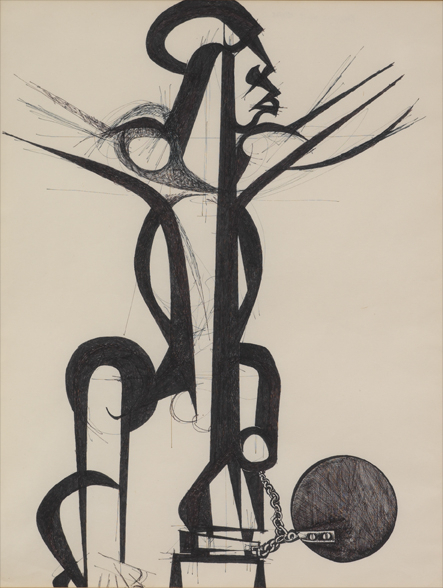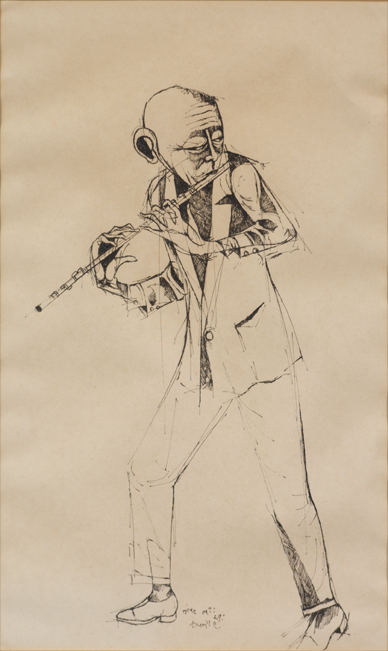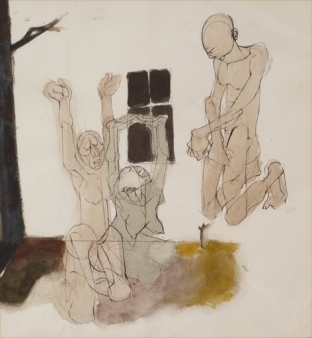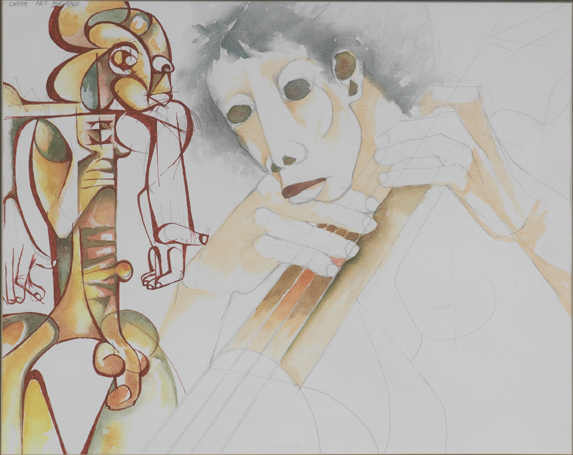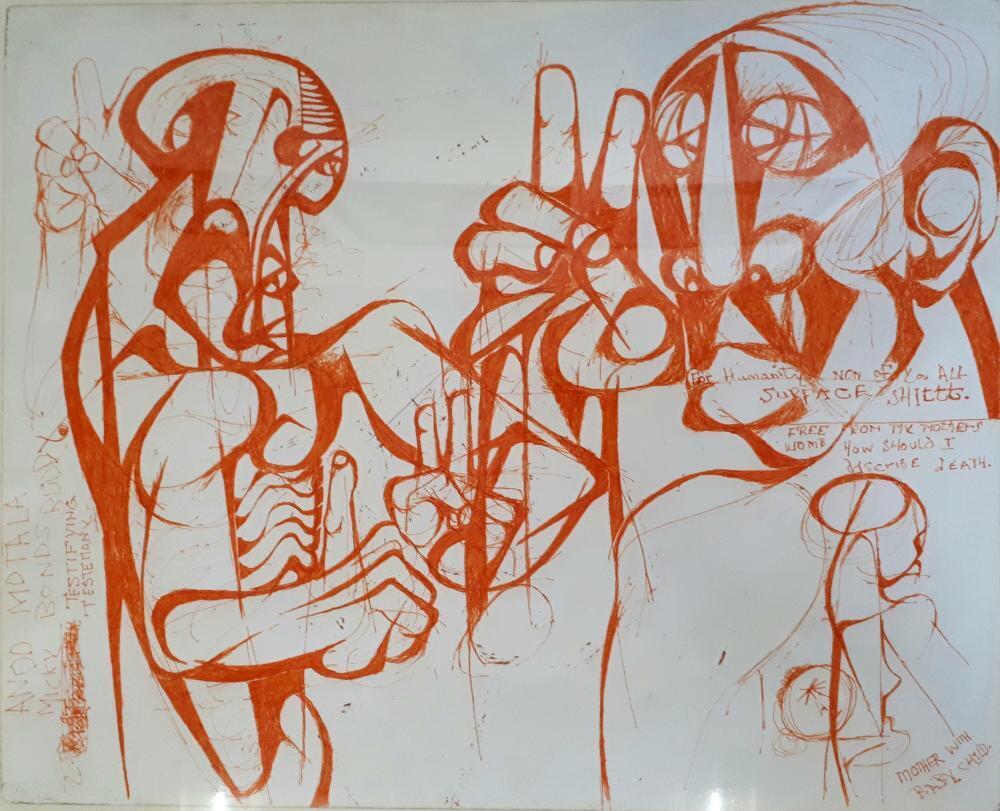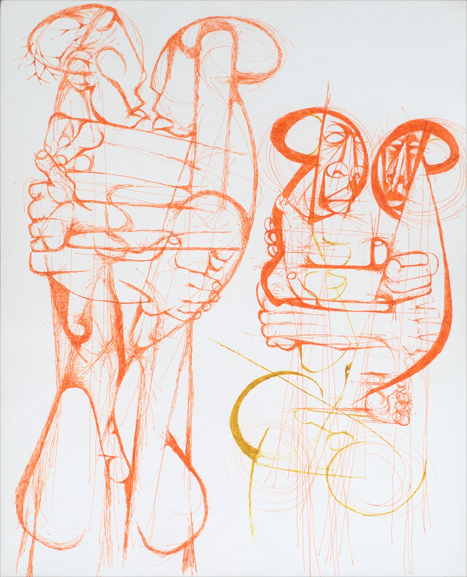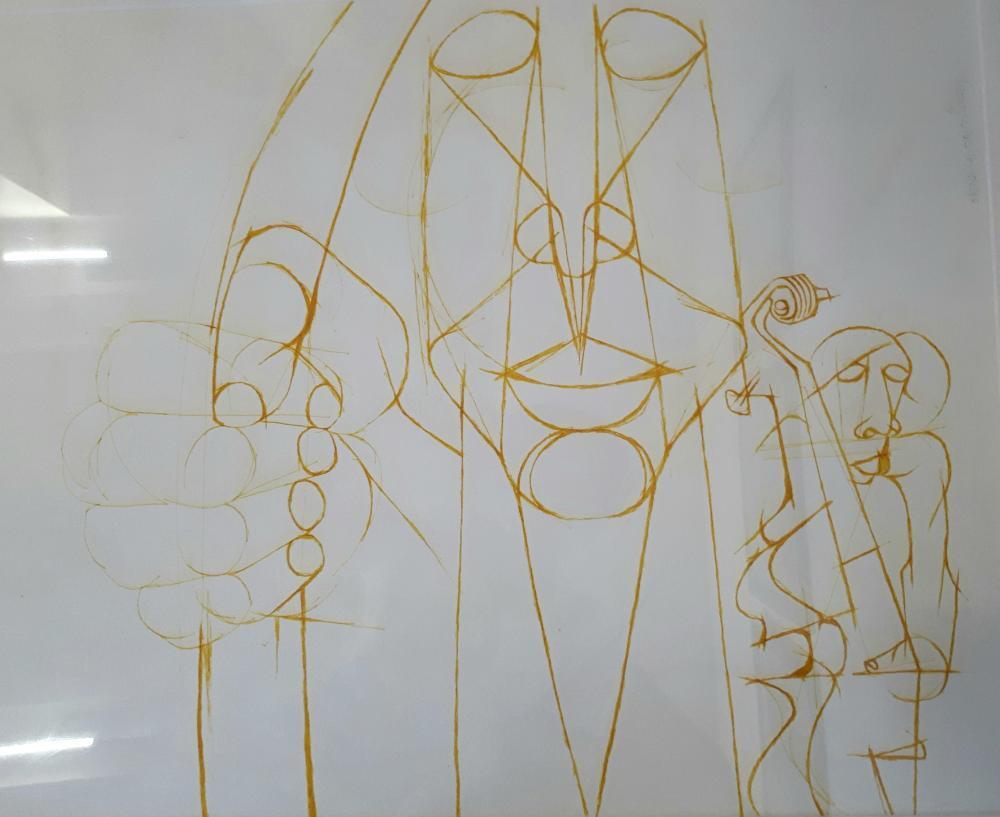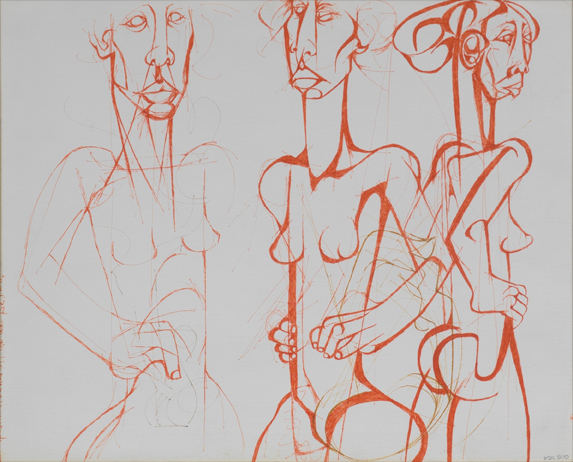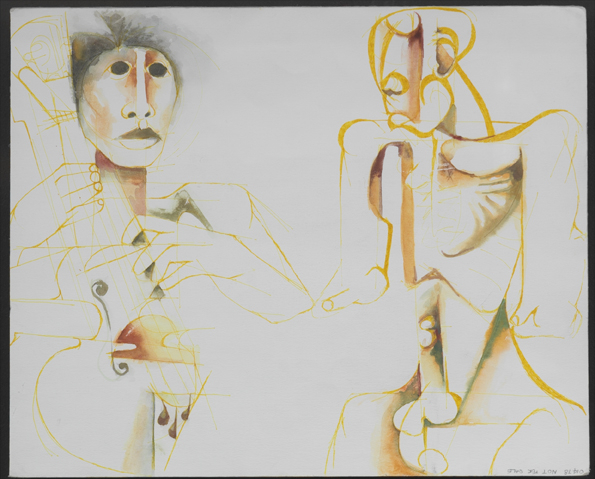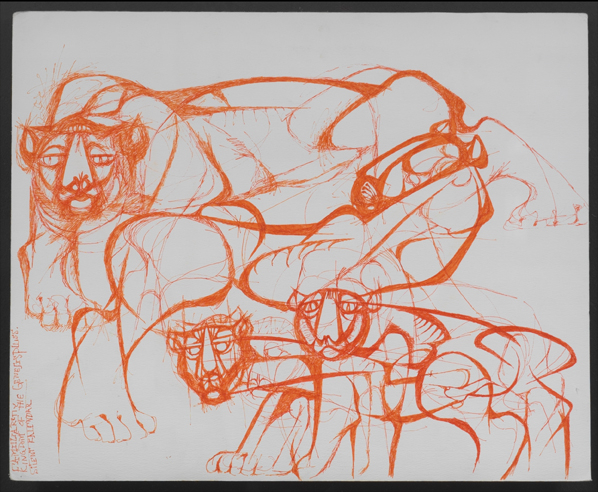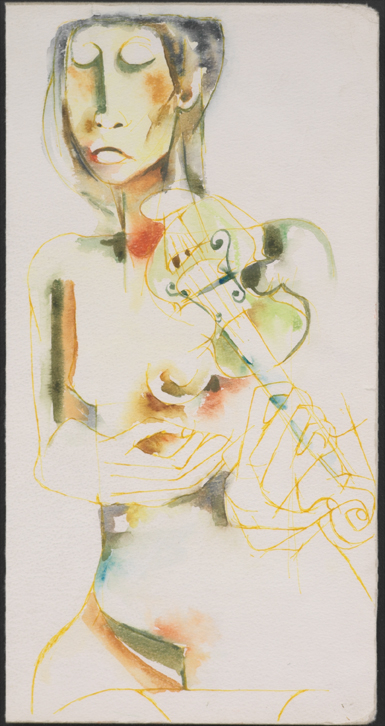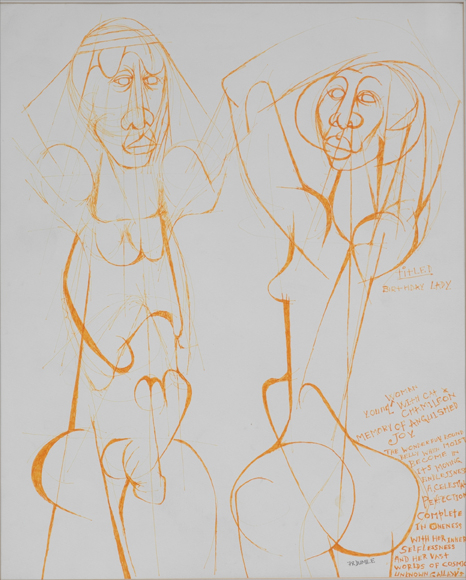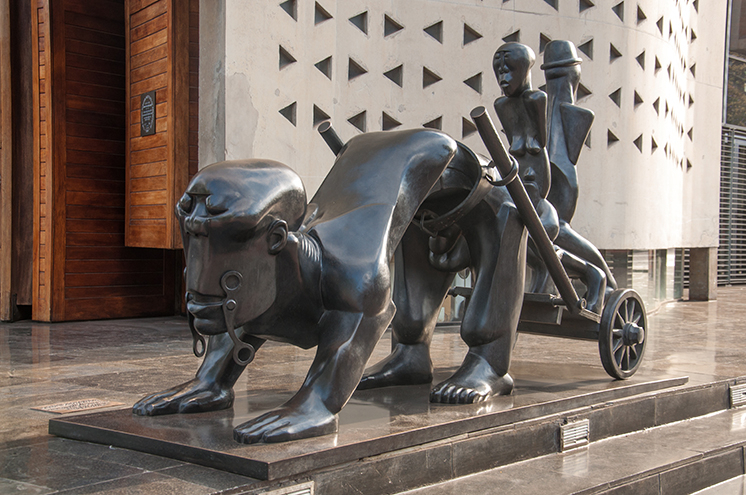Dumile Feni
| Artist Name: | Dumile Feni |
| Nationality: | South African |
| Year of birth: | 1942 |
| Year of death: | 1991 |
| Artist information: | Dumile (Zwelidumile Geelboi Mgxaji Mhlaba) Feni was born in 1939 in Worcester, Cape Town. He began his artistic career by painting and decorating hospital walls while working as a sculptor apprentice at a Johannesburg-based plastics foundry. The intensity of his paintings earned him recognition, and in 1965, he was dubbed the "Goya of the Townships" and granted professional assistance by Gallery 101 in Johannesburg. Two years later, in 1967, his artwork was selected to represent South Africa at the São Paulo Biennial. Feni opted to go into exile in London in 1968 after being harshly criticised for agreeing to represent the apartheid regime and violating the pass laws that restricted free movement at the time. Known for his intensely evocative imagery, he mostly created monochrome drawings, paintings, and sculptures. However, it was a meeting with Ephraim Ngatane while both were recovering at a tuberculosis sanatorium in Soweto that set him on the path to becoming a professional artist. Following their release, Feni and Ngatane painted a series of murals at the hospital. Feni then started attending the Jubilee Art Centre in Johannesburg, where he was taught by another CCAC artist, Cecil Skotnes. South African Justice Albie Sachs studied Dumile's career after meeting him in London and developed a strong admiration for the artist's "deep romanticism". Former Justice Sachs observes that Feni's artwork was able to convey points without abusing misery, nudity, or Africanness, demonstrating that Feni speaks about African humanity with which he is familiar. The University of Fort Hare Collection houses one of Feni's most important works, African Guernica (1967). This was selected as one of the most important works in South African art history and was displayed in the Javett Art Centre’s opening exhibition, 101 Collecting Conversations, at the University of Pretoria in 2019. Feni received additional recognition from the The Presidency of South Africa for his significant contributions to the fight against apartheid as well as his exceptional achievement in the field of art. The artist passed away in 1991. Sources: https://www.grosvenorgallery.com/artists/67-dumile-feni/biography/ [Accessed 22 August 2024] https://www.thepresidency.gov.za/dumile-feni-1939-1991 [Accessed 22 August 2024] https://www.straussart.co.za/artists/zwelidumile-geelboi-mgxaji-mslaba-dumile-feni [Accessed 22 August 2024] |
